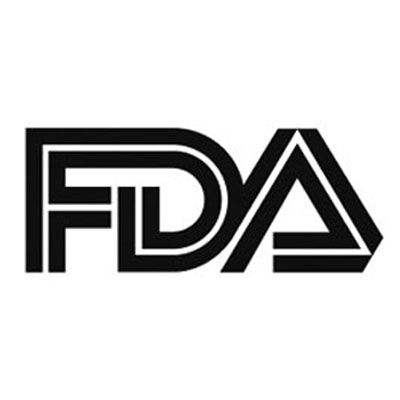FDA Grants Priority Review to NDA for Capmatinib in MET Exon 14+ NSCLC
The FDA granted Priority Review to the New Drug Application for capmatinib, an investigational selective MET inhibitor, which will be used as treatment for first-line and previously treated patients with locally advanced or metastatic MET exon 14 skipping-mutated non–small cell lung cancer, Incyte announced in a press release.

The FDA granted Priority Review to the New Drug Application (NDA) for capmatinib (INC280), an investigational selective MET inhibitor, which will be used as treatment for first-line and previously treated patients with locally advanced or metastatic MET exon 14 skipping–mutated non–small cell lung cancer (NSCLC), Incyte announced in a press release.
The NDA was backed by positive data from the phase II GEOMETRY mono-1 study of capmatinib monotherapy in adult patients with EGFR-wildtype, ALK rearrangement–negative, advanced NSCLC harboring a MET amplification and/or mutation. An efficacy analysis of both treatment-naive and previously treated patients showed a 67.9% overall response rate (ORR; 95% CI, 47.6%-84.1%) and a 40.6% ORR (95% CI, 28.9%-53.1%), respectively. The responses observed were also durable in both groups. The median duration of response (DOR) in treatment-naive patients was 11.14 months (95% CI, 5.55-not evaluable) and was 9.72 months (95% CI, 5.55-12.98) in patients who were previously treated.
Per the safety analysis, the most common adverse events (AEs) were peripheral edema (42%), nausea (33%), creatinine increase (20%), vomiting (19%), fatigue (14%), decreased appetite (13%), and diarrhea (11%), with most being grade 1 or 2 in severity. Less than 10% of patients experienced an AE.
The international, prospective, multi-cohort, nonrandomized, open-label study (NCT02414139) continues to evaluate the safety and efficacy of single-agent capmatinib in this adult patient population. In the study, assigned to an arm based on whether they were treatment-naïve or previously treated and given oral capmatinib 400 mg twice daily.
The primary end point of the study is ORR with secondary end points including DOR, progression-free survival, and overall survival.
Individuals with histologically or cytologically confirmed NSCLC that isEGFR-wildtype,ALK-negative, and withMETamplification are eligible to be included in the study. These patients were required to have an ECOG performance status of 0 or 1. The study excluded patients who had prior treatment with crizotinib or any other cMET or HGF inhibitors; characterized EGFR mutations that predict sensitivity to EGFR therapy; ALK rearrangements; clinically significant, uncontrolled heart diseases; received treatment with medications that cannot be discontinued at least 1 week prior to first dosing on the study; impairment of the gastrointestinal (GI) function or GI disease; and received treatment with any enzyme-inducing anticonvulsant.
If approved by the FDA, capmatinib will fill a gap in the treatment landscape for NSCLC, as no approved therapies currently exist that can specifically targetMETexon 14mutated advanced NSCLC, a mutation that occurs in 3% to 4% of newly diagnosed patients with NSCLC and is considered to be an oncogenic driver.
"Patients with MET exon 14 mutated advanced NSCLC, an aggressive form of the disease, often face a poor prognosis due to lack of available treatment options,” said Steven Stein, MD, the chief medical officer of Incyte, in a statement. "We are pleased the FDA has accepted the NDA for capmatinib for Priority Review, a critical step toward providing the first MET exon 14 mutation targeted therapy to this subset of [patients with lung cancer]."
Reference:
Incyte announces acceptance and priority review of NDA for capmatinib for advanced non-small cell lung cancer [news release]. Wilmington, Delaware: Incyte; February 11, 2020. https://bit.ly/38e0jiC. Accessed February 11, 2020